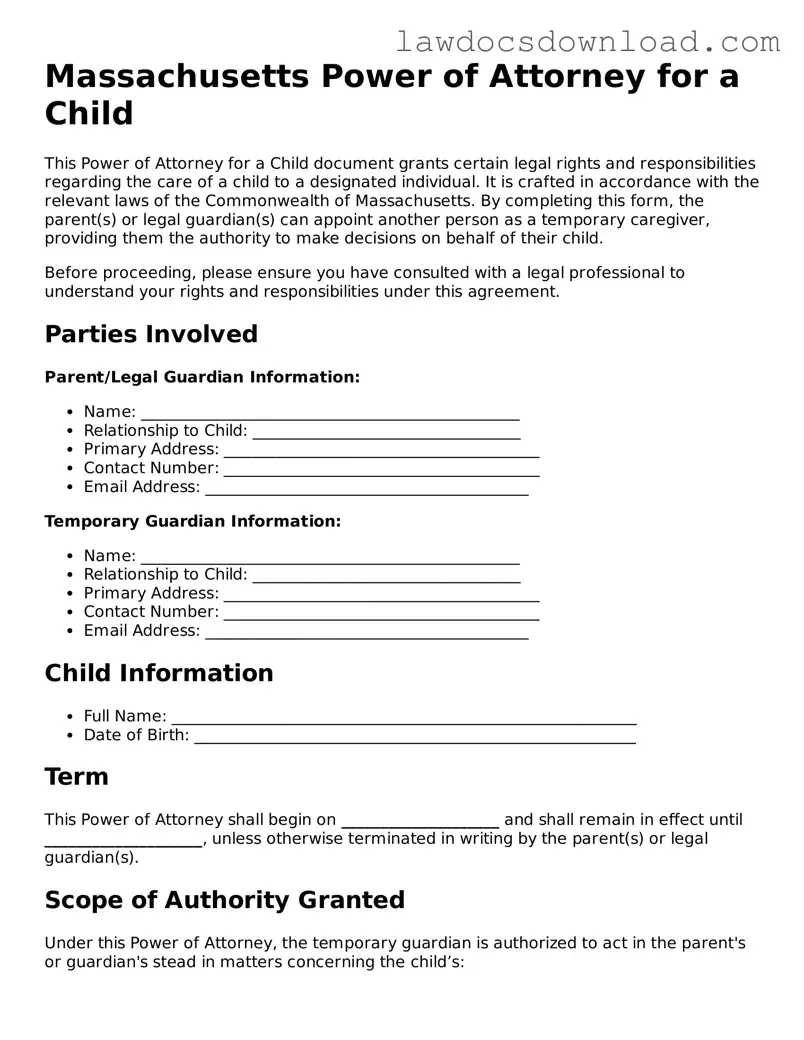Massachusetts Power of Attorney for a Child
This Power of Attorney for a Child document grants certain legal rights and responsibilities regarding the care of a child to a designated individual. It is crafted in accordance with the relevant laws of the Commonwealth of Massachusetts. By completing this form, the parent(s) or legal guardian(s) can appoint another person as a temporary caregiver, providing them the authority to make decisions on behalf of their child.
Before proceeding, please ensure you have consulted with a legal professional to understand your rights and responsibilities under this agreement.
Parties Involved
Parent/Legal Guardian Information:
- Name: ________________________________________________
- Relationship to Child: __________________________________
- Primary Address: ________________________________________
- Contact Number: ________________________________________
- Email Address: _________________________________________
Temporary Guardian Information:
- Name: ________________________________________________
- Relationship to Child: __________________________________
- Primary Address: ________________________________________
- Contact Number: ________________________________________
- Email Address: _________________________________________
Child Information
- Full Name: ___________________________________________________________
- Date of Birth: ________________________________________________________
Term
This Power of Attorney shall begin on ____________________ and shall remain in effect until ____________________, unless otherwise terminated in writing by the parent(s) or legal guardian(s).
Scope of Authority Granted
Under this Power of Attorney, the temporary guardian is authorized to act in the parent's or guardian's stead in matters concerning the child’s:
- Healthcare decisions
- Education
- Day-to-day activities
- Travel
This Power of Attorney does not grant authority to the temporary guardian to consent to the marriage or adoption of the child.
Signatures
All parties agree to the terms outlined in this document and affix their signatures as acknowledgment.
_______________________________________________
Signature of Parent/Legal Guardian
Date: ____________________________________________
_______________________________________________
Signature of Temporary Guardian
Date: ____________________________________________
State of Massachusetts County of ___________________
On this day, ________________, before me, _______________________________ (name of notary), personally appeared, known to me (or satisfactorily proven) to be the person(s) whose name(s) is/are subscribed to the within instrument, and acknowledged that they executed the same for the purposes therein contained.
In witness whereof, I hereunto set my hand and official seal.
_______________________________________________
Notary Public Signature
My Commission Expires: ___________________________

